I just crossed one off my bucket list. Just when I thought cruising on Highway 1 in the United States and ploughing through the sand dunes in the Sahara Desert couldn’t be topped, I did this: hot laps on the Nürburgring Nordschleife. And mind you, I wasn’t here on the invitation by some German brand, no; I’m here thanks to, of all car companies, Hyundai. Wait, what?
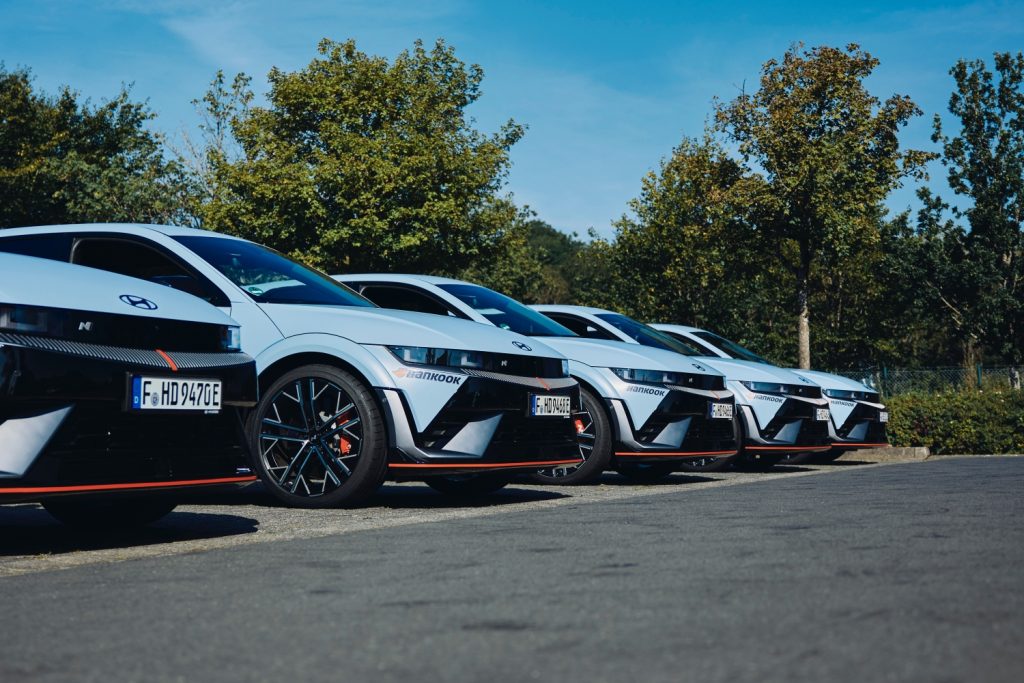
Crazy as it sounds, Hyundai does have their very own high-performance driving program. Christened the Hyundai Driving Experience or HDX for short, it’s all about helping drivers gain a deeper understanding of their vehicles. Though that sounds par for the course when it comes to other driving experiences, HDX offers one big difference: it’s about delivering a holistic experience; one that’s deeply rooted in the company’s own Progress for Humanity ethos. This is Hyundai’s vision of using mobility to strengthen relationships and connections, all the while challenging the status quo and a desiring for better. Here, you could guess that Hyundai is challenging itself to pivot its image from producing cookie-cutter sedans and SUVs to purveyors of high-performance vehicles that can challenge the world’s best. This, you could say, led to the birth of Hyundai N.
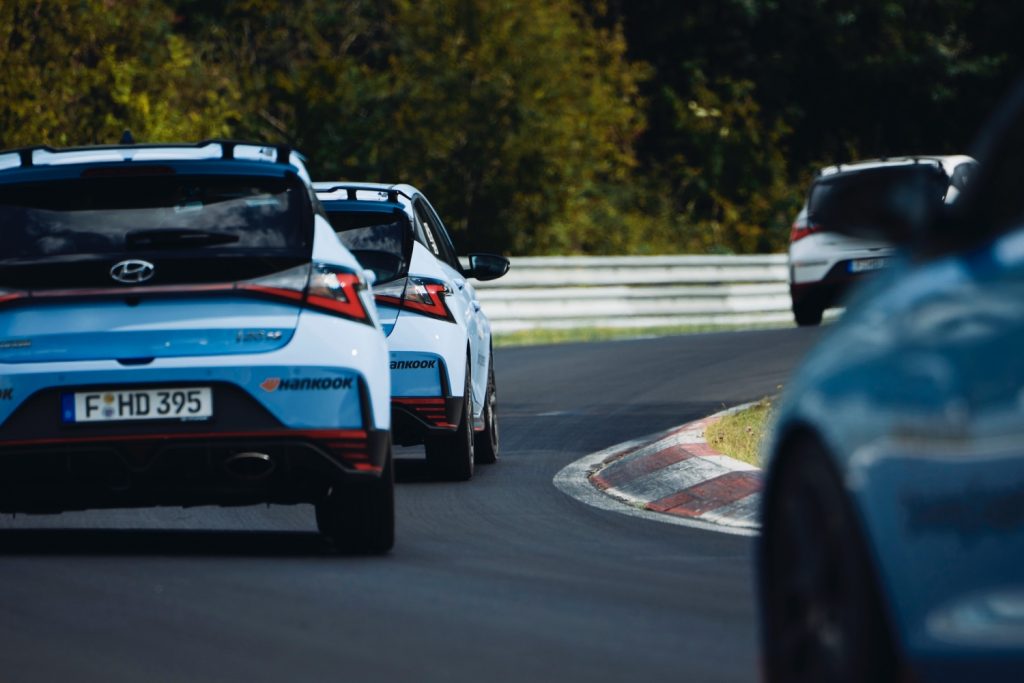
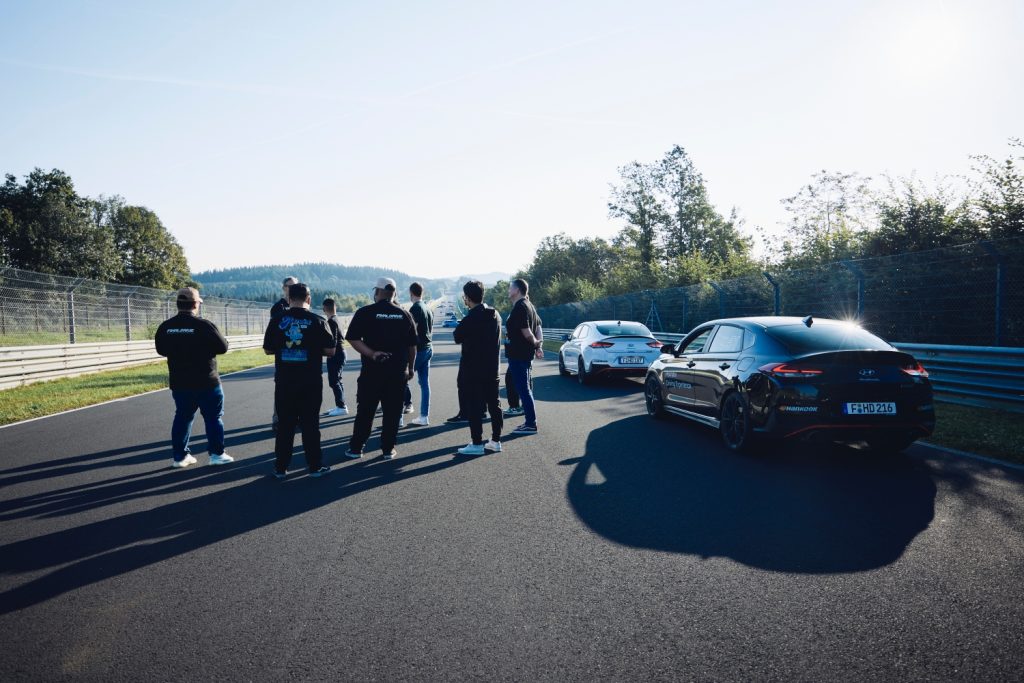
Now, the “N” in Hyundai N stands for the Namyang R&D Center where every Hyundai N model is designed and engineered by a crack team of passionate experts. These “N-thusiasts,” as the carmaker calls them, came up with a simple three-part formula that summarizes what fun-to-drive means for them: the Hyundai N DNA. It has three pillars: the first is called the Corner Rascal which means that driving enthusiasts can push these cars to their limits, especially when going through bends and corners. The second is Everyday Sports Car, which signifies that N models aren’t high made just for high-performance thrill seekers, but for everyday drivers too. Lastly is Race Track Capability. To earn the N, the vehicle must be track-ready as-is—with little or no need for reinforcements or modifications.
Besides Namyang, the N has a second meaning, and that’s what brings me to this location: the Nürburgring Nordschleife. Built in 1925 and completed in 1927, this is widely considered as the most complex, most difficult racing circuit in the world. The length itself, 20.832-kilometers, is daunting enough, but add the 73 corners—33 to the left and 40 to the right—and a surface that’s not exactly smooth, and you have a track that’s notoriously difficult to master. It’s the scene of many fiery accidents and YouTube fails. Ultimately, it’s also the reason why carmakers publicize their lap times. For this particular instance, Hyundai N brought out the Ioniq 5 N and i30 N.
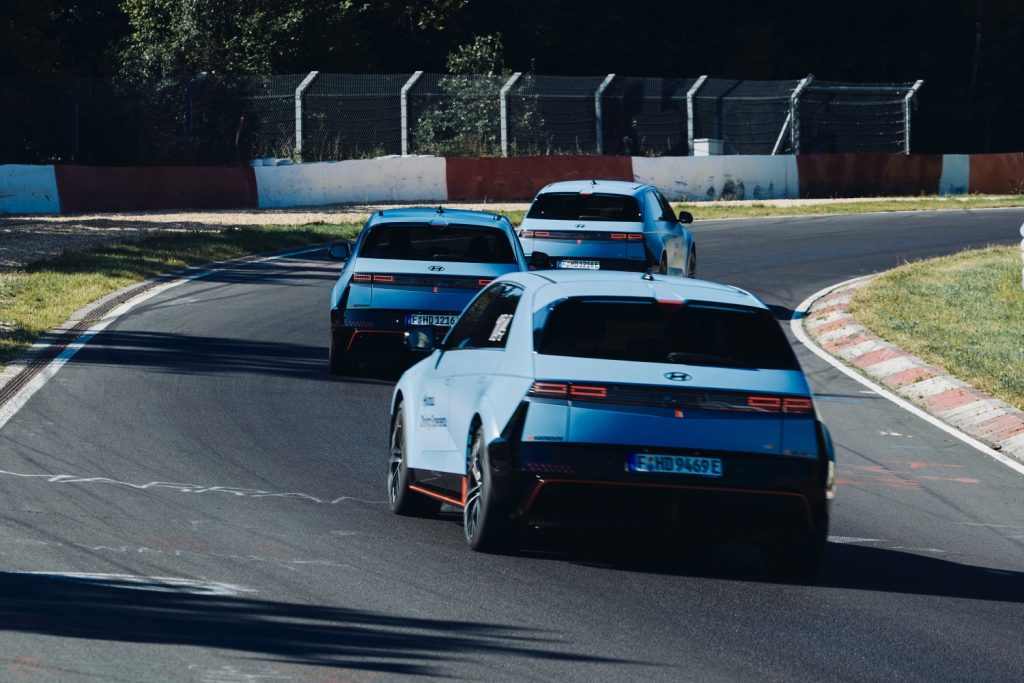
The Ioniq 5 N needs little introduction. I was floored by its performance during its global drive program a couple of months back. As a machine, it’s effortlessly and brutally fast. More than just its ability to rearrange your breakfast in an instant, it also seems to overcome the laws of physics. It belittles its two-ton weight in just about everything that it does. Beyond the numbers, and those are impressive ones, mind you, its dualistic nature is what endeared me. It’s ruthless on the racetrack (or b-roads), but comfortable and pliant on the highway. As a battery electric vehicle, it’s supposed to be cold and as detached from emotion, yet it tugs at the heartstrings and can cause even the most hardcore petrol head to shed a tear. It’s designed to be as analog as a supercar (super SUV), but it did so thanks to software and lines of code. It’s a car that doesn’t make a whole lot of sense, but the motoring world is so much better because of it.
This impressive CV leads me to believe that the Ioniq 5 N would make lapping the Nürburgring Nordschleife a walk in the park. And it does—thanks to some clever stuff. Switching on the simulated gear shifts and engine sounds help a ton because it’s easier to remember what the appropriate gear is rather than the appropriate speed. Also, with your eyes laser-focused to make sure you hit the right lines, aural feedback, even if simulated, does a lot to reduce your brain’s workload. Of course, as a 650-horsepower all-wheel drive hatchback-crossover-SUV thing, its limits are exceptionally high and it takes big cojones to extract it. As I take several corner complexes at 130 km/h, I thought mine was already of an appropriate size; only for the instructor to blitz through the same set at 150 to 160 km/h.
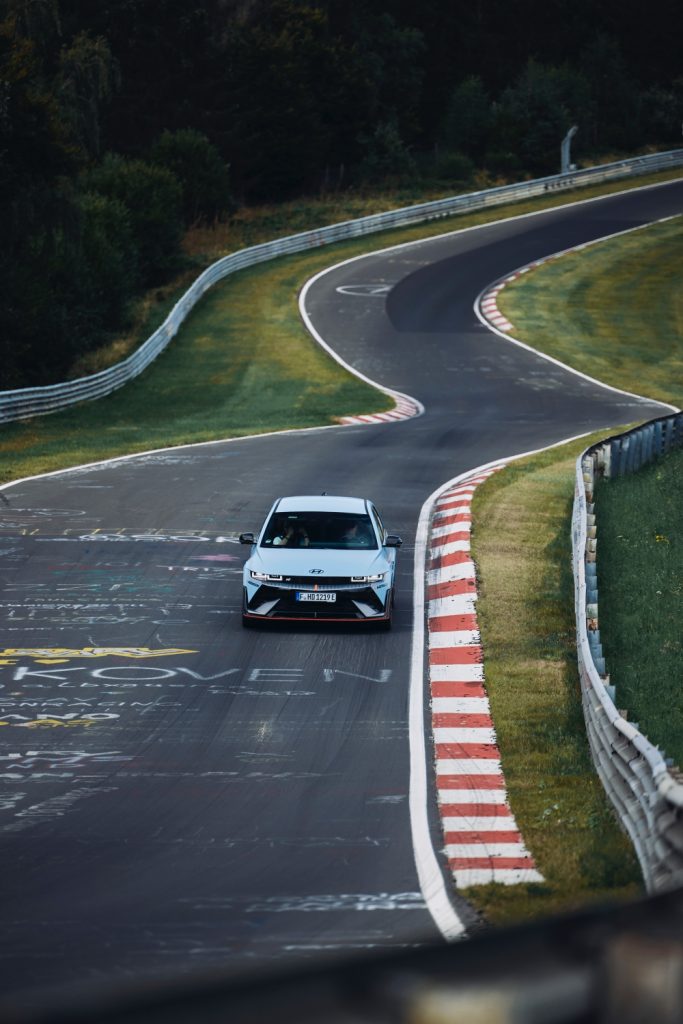
Now, because the Ioniq 5 N is so capable, but also so scary, I’d point us “regular” car guys with regular-sized cojones to the i30 N. The name isn’t familiar, but it’s known to us as the Elantra N. The powertrain’s the same on both models—a turbocharged 2.0-liter with 280 horsepower and 392 Nm of torque. It drives the front wheels via an 8-speed dual clutch automatic. The N-thusiasts have also done the same sort of things too—body reinforcement, stiffer sway bars, high-performance brakes and tires, blah blah blah. The basic difference here is in the styling. The i30’s the reserved European sibling to the Elantra’s out-and-out fashionista.
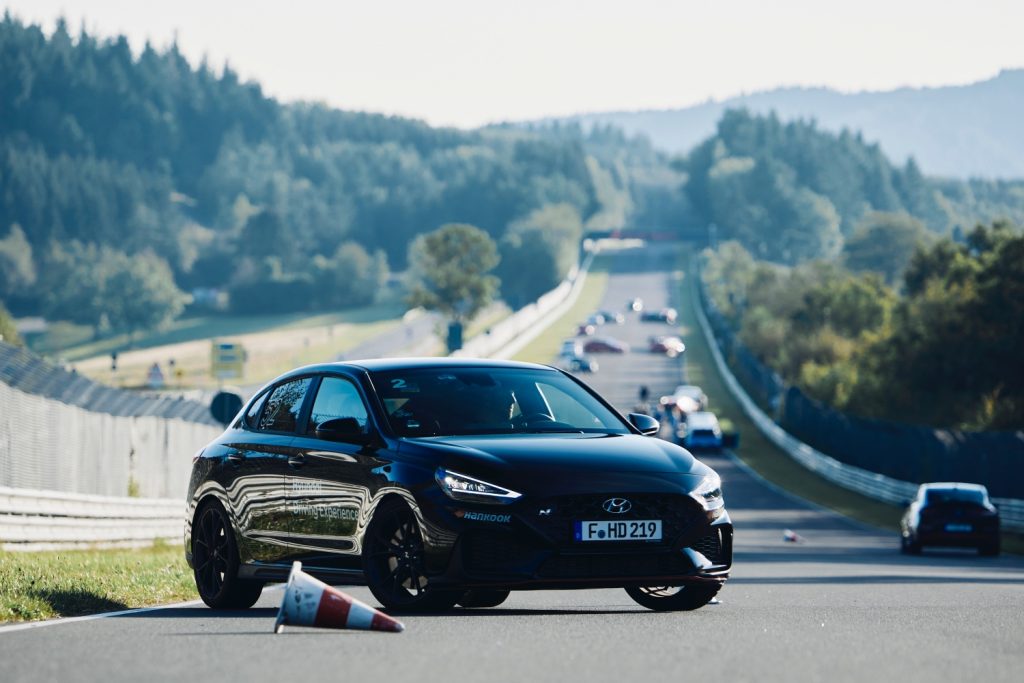
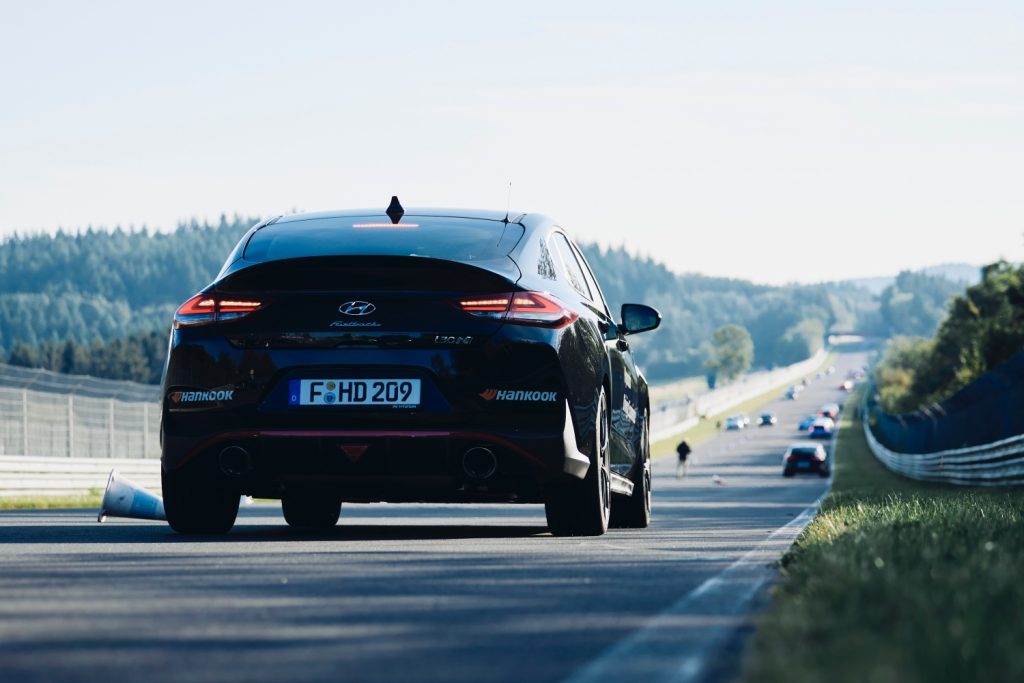
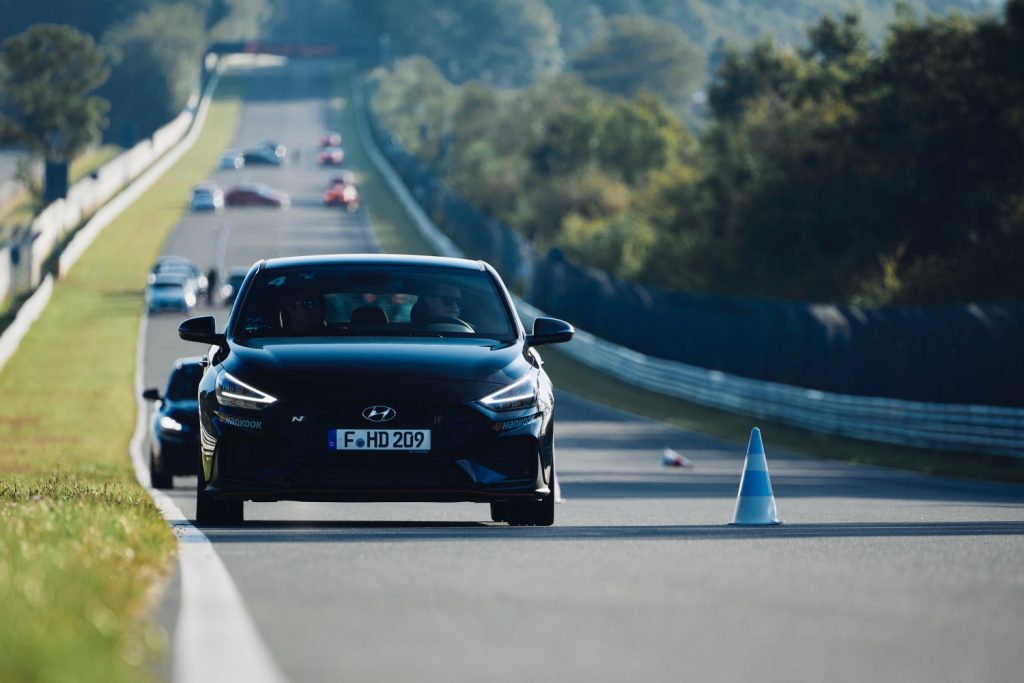
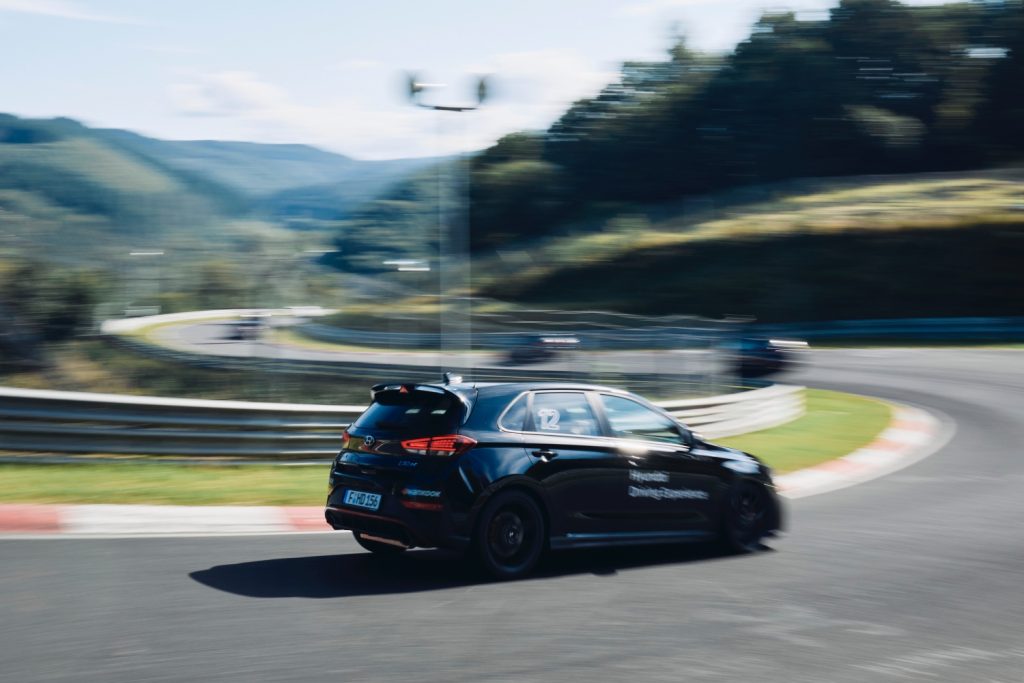
Now, don’t let those facts and figures put you off: the i30 N and by extension, the Elantra N, is more than the sum of its parts. Compared to other hot hatches (hot sedans) in the same price bracket, it’s fun, capable, but above all, approachable performance-wise. For the younger ones, Hyundai didn’t forget to add a high degree of customizability. Everything from the steering, throttle, to the behavior of the Limited Slip Differential can be tweaked—it’s just like playing Gran Turismo. However, it also caters to the set-and-forget mindset. Switch to Sport, and it’s just so good to drive. All its ingredients come together to create a magnificent dish; a masterpiece. Through the 73 corners of the so-called Green Hell, the steering is just so precise, the body so communicative, and the brakes just so confident. Best yet, it can do this tightrope dance lap after lap after. By far, you’ll reach your physical limits way sooner than the car. I’d wager: when Hyundai said they sought out to create something that’s not only high-performance, but also fun-to-drive, this is the car they had in mind.
This experience has taught me that no amount of Playstation or Xbox will be able to replicate the physical sensations of driving on the Nürburgring Nordschleife. The dips and rises, side-to-side G-forces—it’s like being on a roller coaster—only you’re in 100 percent control. It also gives me deeper appreciation and respect for people who take on races like the 24-hour Nürburgring Challenge. Six hot laps in, and my out-of-shape arms were ready to give up. These athletes? They’d do 40 to 50 laps of it flat out, in any condition, day or night. It also says something about the cars, like the Elantra N, that do the same sort of challenge. The fact that they managed a class podium sweep this year just shows you how far Hyundai’s gone up. A brand for the car enthusiast? You better believe it. I did.

